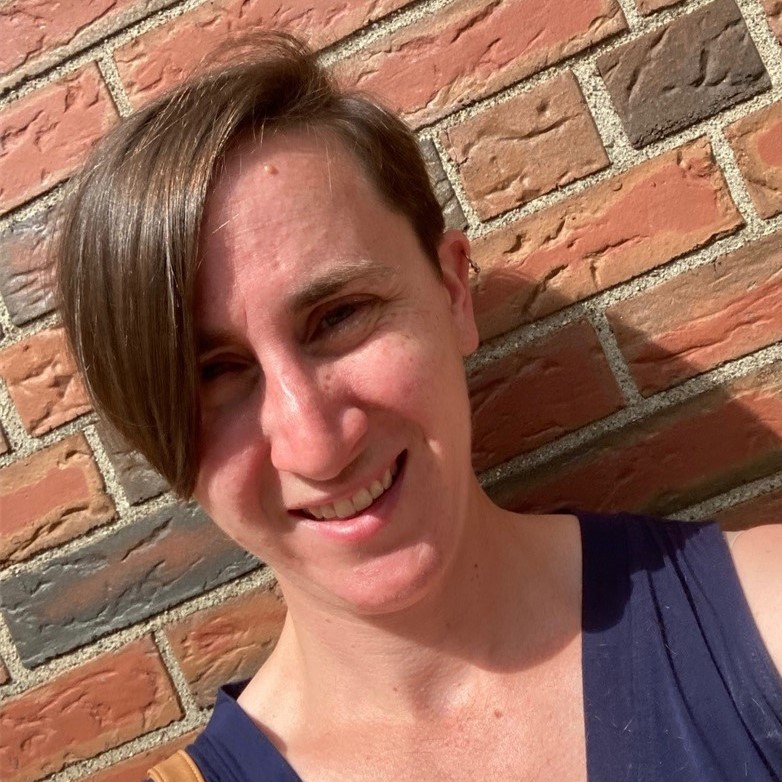
Lauren Nackel, Human Resources Manager, shares her thoughts and wisdom gained throughout ten years of service on behalf of domestic violence survivors at REACH Beyond Domestic Violence.
I recently celebrated my 10-year anniversary of working at REACH Beyond Domestic Violence. As I reflect on what this means, I find myself overwhelmed with gratitude that I’ve had the unique privilege to work not only in this vitally important field, but alongside colleagues who inspire me each and every day.
When I first walked through REACH’s doors in 2013 as a new Residential Advocate working at the shelter, I remember being so surprised that they had trusted me to take on this awesome responsibility. Here I sit, 10 years later, reflecting on the survivors I have been humbled to walk alongside, the community members I learned from and with, and the team of staff I now support through my role in Human Resources. I never imagined that my first “real” job could transform into a career.
Over the past 10 years, I’ve learned more lessons than I can put into words. I wanted to take this moment to reflect on a few and share them with you:
- Survivors are the experts in their own lives. What this means is that no matter how long I do this work, no matter what I believe safety looks like, when I am supporting a survivor, they know what is best for them.
- It’s about giving options, not advice. It’s so tempting to tell survivors what to do. Our gut instinct is to pull people out of dangerous situations. But to do empowerment-based work that is grounded in the principle that survivors are indeed the experts in their own lives, the very best thing we can do to support those we care about is to provide the options. That doesn’t mean we don’t support them by sharing ideas or resources. It simply means that the choice is ultimately up to the survivor.
- It’s impossible to end domestic abuse without interrupting all forms of oppression. Abuse is about gaining and maintaining power over another person. As is racism. As are all forms of oppression. It will be impossible to end any of them without interrupting all of them.
- Taking care of yourself isn’t a luxury, it’s a necessity. This was, or maybe I should say is, a tough lesson for me. I still have to remind myself of this daily. Without adopting this belief, I’m confident I wouldn’t still be doing this work today.
- It’s about more than self-care. The goal is collective community sustainability. We can promote self-care every day, and it’s important. But if organizations, workplaces, and communities fail to promote values and structures that lead to sustainability, taking care of yourself will never be enough for long-term solutions.
- We truly are all in this together. And we have to be if we hope to create sustainable change.
- The people who work, volunteer, organize, and/or support this work in various ways are nothing short of incredible. There’s not enough time in the world to share all the stories of perseverance, compassion, fierce advocacy, and resilience I have witnessed. I will forever sit in gratitude for all those I’ve learned from.
- Survivors of abuse are beyond resilient. While most of my time here at REACH has not been in a traditionally “direct service” role, I’ve had the unique privilege to support many survivors of abuse. The stories I’ve heard are heart-wrenching, and yet the people I’ve gotten to know are filled with compassion, empathy, and resilience.
- It’s so much harder when supporting someone in your personal life. It doesn’t matter how much training I’ve received or facilitated on how to support a survivor of domestic abuse. When someone I know or love is experiencing harm, my first instinct is to swoop in and try to “save them,” regardless of knowing that to do so would in fact be yet another person taking away power and control in their life. These moments remind me why the work REACH does is so important—because none of us can do this alone.
- It may never feel like “enough,” and yet it can be everything in this moment. In my 10 years at REACH, I’ve grieved alongside community members who have lost loved ones to abuse. I’ve listened to stories where I wondered, “could we have done more?” I’ve sat with colleagues asking the question, “can we ever do enough?” Whether I’m trying to support a friend experiencing abuse in their relationship or answering a hotline call, it’s so easy to fall into the all or nothing mentality of wondering “with all the pain in the world, can we ever make a difference?” I believe we have. I have. You have.
Every day when someone answers a hotline call, completes an intake, listens to and believes a loved one when they share their experience of abuse, or talks about the importance of healthy relationships, we’re making an impact. It may seem insignificant, but each of these acts—they add up to cultural change. And that is why I believe we will someday reach beyond domestic violence.





